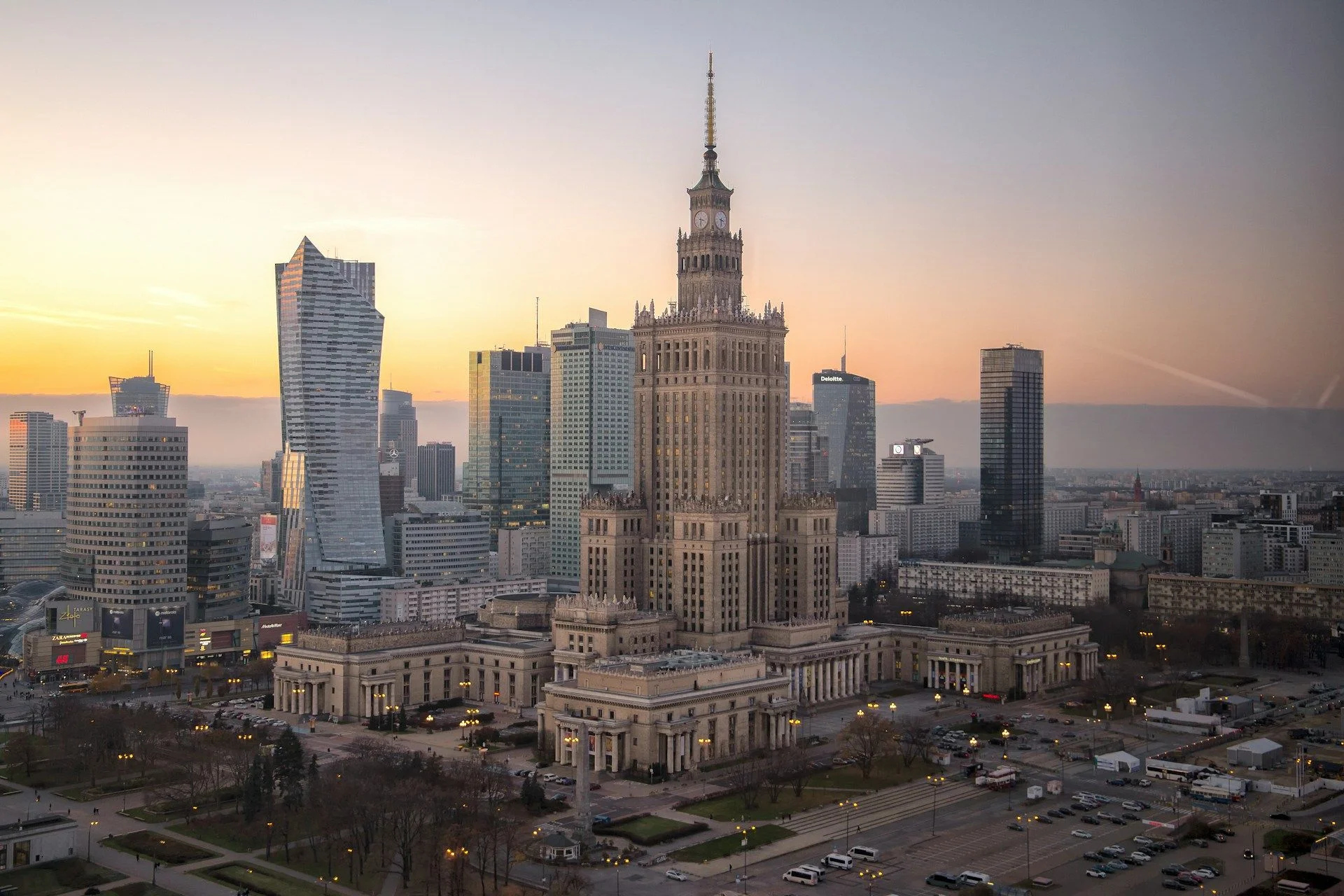Warsaw Investment Real Estate – Opportunities for Foreign BuyersEuropean rhythm withPolish clarity

Best offers
in Warsaw
Benefits of investment in
Poland real estate
Fast-growing economy with real estate upside
Poland’s strong GDP growth supports rising housing demand and capital appreciation across key cities.
Diverse tenant base with year-round occupancy
Students, IT professionals, and corporate tenants maintain high rental occupancy in Warsaw, Kraków, and beyond.
Accessible pricing in the European Union
Compared to Western Europe, Poland provides a more affordable entry into an EU-regulated property market.
Fast-growing economy with real estate upside
Poland’s strong GDP growth supports rising housing demand and capital appreciation across key cities.
Diverse tenant base with year-round occupancy
Students, IT professionals, and corporate tenants maintain high rental occupancy in Warsaw, Kraków, and beyond.
Accessible pricing in the European Union
Compared to Western Europe, Poland provides a more affordable entry into an EU-regulated property market.

Useful articles
and recommendations from experts
Real estate in Warsaw: dynamic capital city with strong investment fundamentals
Introduction: Why invest in Warsaw
Warsaw, the capital of Poland and its largest city, has become one of Central Europe’s top real estate markets. With a fast-growing economy, a robust labor force, EU integration, and strategic proximity to both Western and Eastern Europe, Warsaw offers property investors a stable and high-performing urban environment. The city attracts multinational corporations, startups, international students, and affluent residents — fueling demand for residential, commercial, and mixed-use real estate. Coupled with Poland’s business-friendly legal framework and relatively low entry prices, Warsaw continues to be a prime destination for foreign real estate investment.
Types of property in Warsaw
The Warsaw market is large, diverse, and segmented by both geography and asset class:
- Modern apartments: Dominant in districts like Mokotów, Wilanów, and Wola
- Luxury penthouses and condos: Found in Śródmieście and Powiśle
- New residential developments: Expanding in Ursus, Białołęka, and Bemowo
- Student housing and studios: Around universities and in central zones
- Office and commercial space: Especially in Warsaw's CBD and business parks
Can foreigners buy property in Warsaw?
- EU/EEA citizens: Can freely purchase all types of real estate, including land and houses
- Non-EU citizens: Can buy apartments and office units without a permit; houses or land purchases typically require approval from the Ministry of Internal Affairs (though this is often granted for personal use)
- All purchases must be notarized and registered in Poland’s land and mortgage registry
Property prices in Warsaw
- City center (Śródmieście, Powiśle): €3,800–€5,500/m²
- Mid-tier zones (Mokotów, Żoliborz, Wola): €3,000–€4,200/m²
- Affordable districts (Białołęka, Ursus): €2,200–€2,900/m²
- New builds: Typically 15%–20% higher than secondary market equivalents
Despite price growth over the past decade, Warsaw remains more affordable than most Western European capitals, while offering superior rental demand and lower transaction costs.
Rental yields and tenant demand
- Long-term residential rentals: 5%–6.5% gross annual return
- Short-term rentals: Up to 8% yield in central districts and around Warsaw Chopin Airport
- Student rentals: Driven by Warsaw University, SGH, and international programs
- Corporate rentals: High-quality 1–2 bedroom units in Mokotów and Wola are in demand by professionals working in finance, IT, and consulting
Top districts for real estate investment
- Śródmieście: Warsaw’s historical and financial heart — ideal for premium rentals and capital preservation
- Wola: Rapidly transforming into a modern business district with luxury high-rises and strong appreciation potential
- Mokotów: Family-oriented, leafy, and home to many international companies and embassies
- Powiśle: Riverfront zone undergoing upscale regeneration with cafés, parks, and cultural centers
- Białołęka: Affordable housing and high rental demand from young families and commuters
Infrastructure and urban quality
- Transport: Two metro lines, extensive bus/tram networks, and direct rail to Berlin, Kraków, and Vienna
- Airport: Warsaw Chopin Airport connects to major global hubs
- Healthcare: State and private hospitals including Medicover and LuxMed
- Education: International schools, bilingual academies, and universities
- Public space: Łazienki Park, Vistula River boulevards, and bike paths
Transaction costs and taxes
- Transfer tax (PCC): 2% on secondary market transactions (not applicable to new builds)
- Notary and legal fees: 1%–2% of the purchase price
- Registration in land registry: Approximately €200–€300
- Property tax: Very low — under €150/year for standard apartments
- Rental income tax: 8.5% flat for small landlords or progressive rates up to 32%
- Capital gains tax: 19% if sold within 5 years (exempt after that)
Residency and visa opportunities
- EU citizens can reside and invest without restrictions
- Non-EU investors may apply for temporary residence based on property ownership or business activity
- Real estate alone is not a direct pathway to permanent residency, but long-term legal stay and contribution to the economy can help build the case
Investment case studies
- 2-bedroom in Wola (75m² at €4,200/m²): Corporate lease at €1,700/month → 6.4% yield
- Studio in Powiśle (35m² at €5,000/m²): Airbnb performance of €90/night with 75% occupancy → ~8% annual gross return
- Family apartment in Ursynów (85m² at €2,800/m²): Long-term rental to expat family → 5.3% return
Risks and market trends
- High interest rates: Can limit local demand but create buying power for cash-rich foreign investors
- Urban regulation: Some new restrictions on short-term rentals are under discussion in EU contexts
- Supply pressure: Demand remains high despite construction activity — shortages in popular zones expected to persist
How VelesClub Int. supports investments in Warsaw
- Access to vetted off-market deals and pre-launch projects
- Legal support, including representation and tax optimization
- Rental management — long-term, short-term, and hybrid
- Design, furnishing, and renovation services
- Residency and business incorporation consulting
Conclusion
Warsaw offers investors a mature, liquid, and diverse real estate market with strong fundamentals. Its role as a business capital, cultural destination, and EU strategic center ensures long-term appreciation
